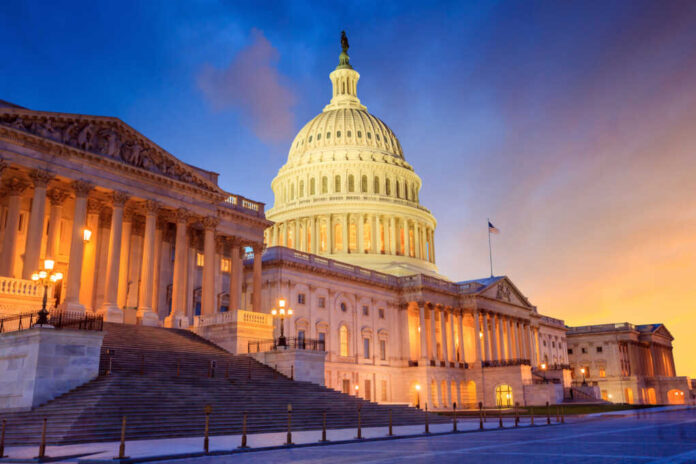
President Joe Biden signed a spending package into law this week that averted a potential government shutdown. While the agreement would keep the federal government open, it also came with significant criticism from some House Republicans over what they call a high level of federal spending and deficits.
The president’s signature on the Extension of Continuing Appropriations and Other Matters Act, 2024 bill would extend the government’s funding window for an additional week while the House is currently on recess.
Both the House and the Senate will consider bills to fund the government and avoid a wider shutdown in the future.
Congress will have until March 22 to pass a separate spending package.
The bill received considerable support from Republican leadership in Congress and nearly every Democrat.
A joint statement from Republican and Democratic leadership in the House and Senate read that the group was “in agreement that Congress must work in a bipartisan manner to fund our government.”
“It’s pretty safe to say we all agree we need to avoid a government shutdown. Under no circumstances does anybody want to shut the government down,” said Senate Minority Leader Sen. Mitch McConnell (R-KY).
McConnell: “It's pretty safe to say we all agree we need to avoid a government shutdown. Under no circumstances does anybody want to shut the government down.” pic.twitter.com/5Nur7fj88u
— TheBlaze (@theblaze) February 27, 2024
While the bill passed both the House and the Senate, it received a significant number of ‘no’ votes from House Republicans. Almost 100 House Republicans voted against the measure. Members of the House Freedom Caucus portrayed the spending package as unacceptable as the United States has more than $34 trillion in public debt.
Despite the opposition, most Republicans in the House joined a large majority of Democrats to support the measure.
In the Senate, the bill passed by a measure of 77-13.
The move followed an agreement between House Speaker Mike Johnson (R-LA) and Senate Majority Leader Sen. Chuck Schumer (D-NY) to spend almost $1.6 trillion in discretionary funds to keep the government open earlier this year.
The bill also comes as the House will consider a potential foreign aid package for Ukraine, Israel and Taiwan which was passed by the Senate in February.














